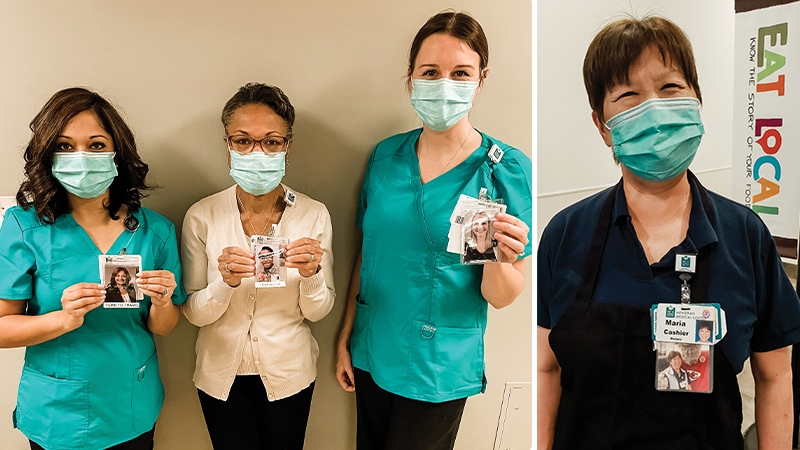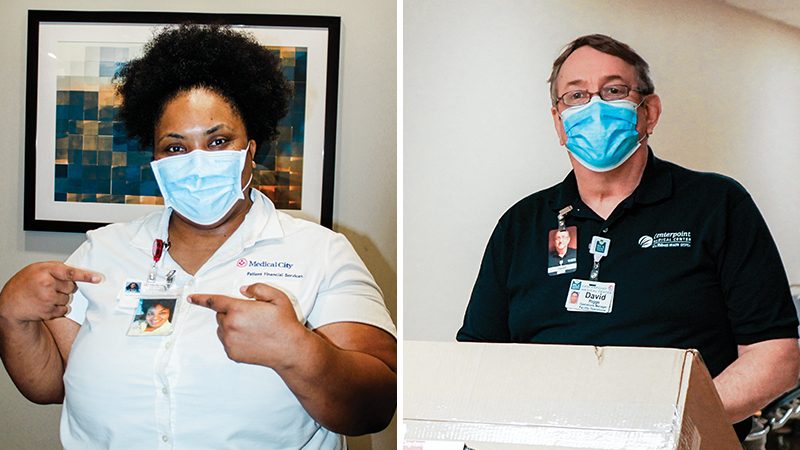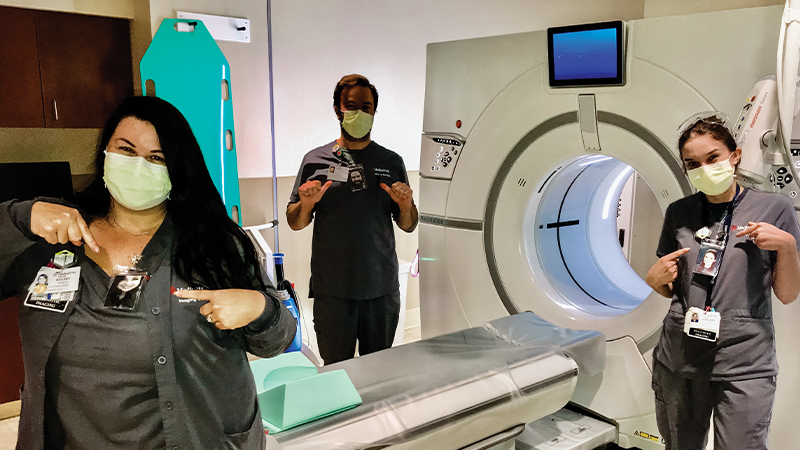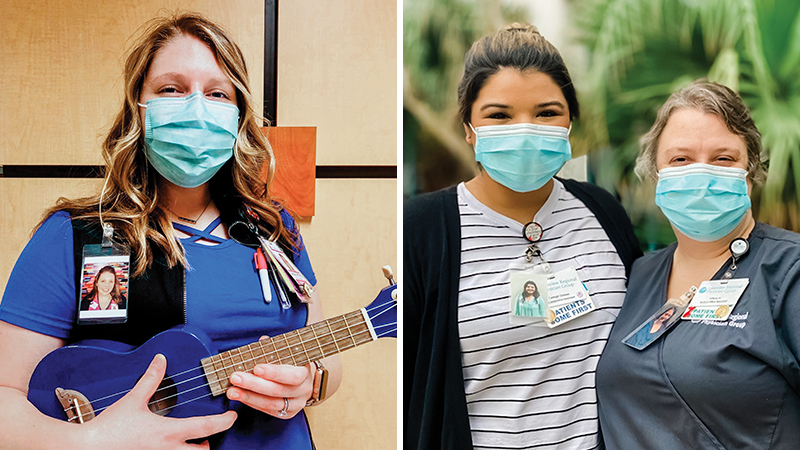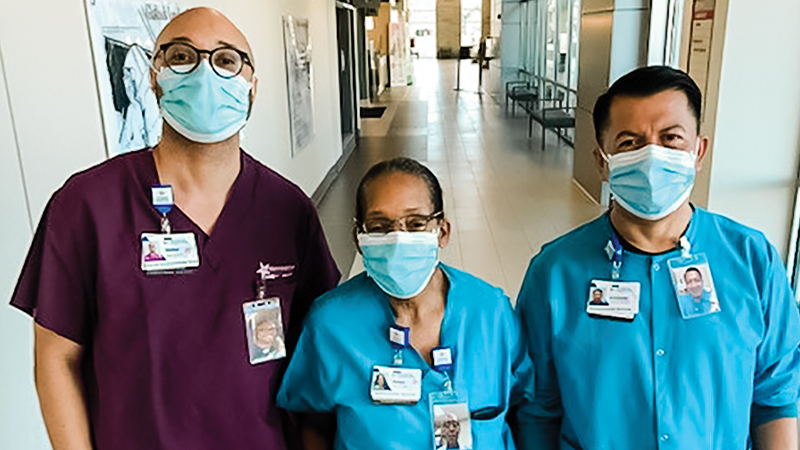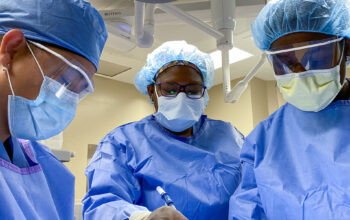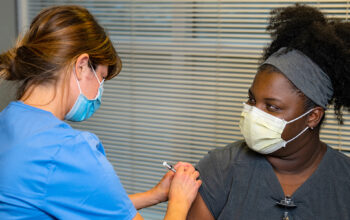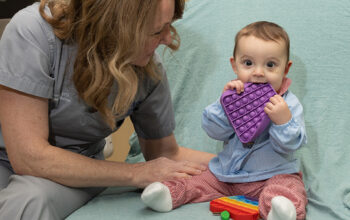Colleagues and patients stay connected — bringing smiles and rave reviews.
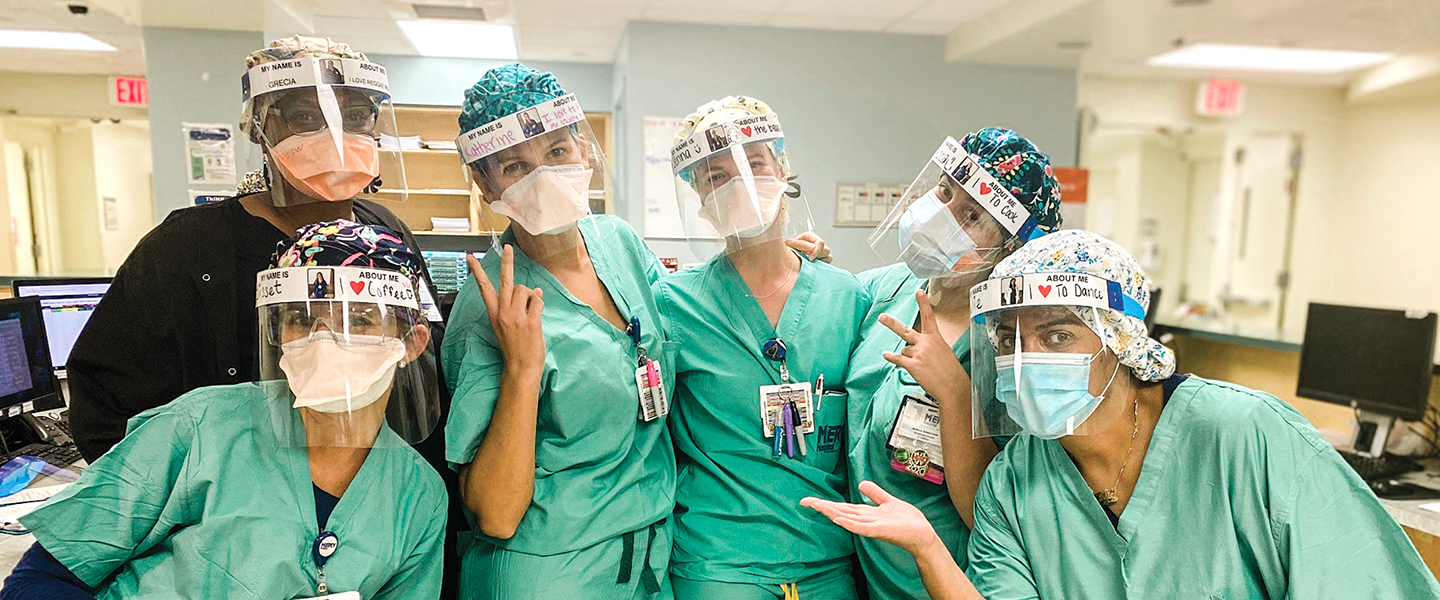
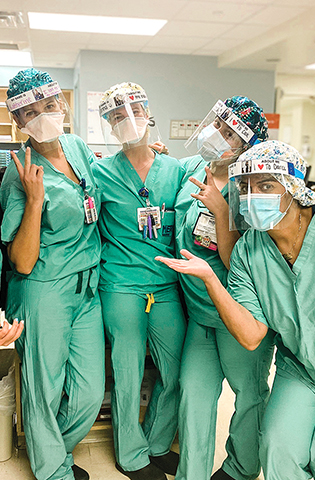
When the coronavirus pandemic began to transform much of the world in early 2020, who could have known how ubiquitous face masks would become?
But although they play a vital role in helping prevent the spread of COVID-19, masks can also obscure something else that is important: a smile. Being deprived of this natural connection between people can create an emotional barrier for patients who may already be feeling anxious, uncertain or isolated. Other methods that frontline colleagues use to help ease concerns — a gentle touch, a softly spoken reassurance — can also be constrained by caregivers’ essential personal protective equipment (PPE).
Patients have said they can’t always easily identify their fully outfitted caregivers, which sometimes leaves them feeling detached. Enter the Beyond the Mask (BtM) program. Launched late last year, it works like this: Colleagues place a photograph of themselves near their work ID badge that clearly shows their smiling, mask-free face. Colleagues can also jot down a fun fact about themselves and display it near their picture. These personal touches create a connection with the patient, encouraging interaction and perhaps sparking a conversation.
While BtM is not mandatory, all colleagues are encouraged to participate. “This is the scariest time in a patient’s life,” says Brianna Abramson, RN, a nurse at Medical City Dallas (in Texas). “When we are able to connect with them — when they say, ‘Oh that’s what you look like behind your mask, that’s what you look like smiling!’ — it really makes it such a great experience for everyone involved.”
Who Was That Unmasked Man?
The idea for BtM was inspired by a photo posted on European social media of a nurse in full PPE wearing an oversized photo of himself — smiling and mask-free — on his gown.
In the midst of such a challenging time, HCA Healthcare decided to launch BtM to lift spirits and reconnect with patients in this creative way. A positive care experience is of the utmost importance throughout our facilities. Every opportunity to ensure patients and their caregivers have the support they need, both clinically and emotionally, is an opportunity to raise the bar for care across the country.
BtM is a well-received program that colleagues have embraced. Our caregivers are eager to find a way to connect with their patients every step of the way. And find a way they did, starting in the North Texas Division. The smiling photo of Mallory Dean, RN, CVICU, Medical City Dallas — showing her outdoors and wearing a cowboy hat — caught the attention of a patient, who asked, “Are you a cowgirl?”
The result: Mallory chuckled; the patient smiled; and a treasured connection was made.
“This photo helps families and patients to not be afraid and to see who I am,” explains Lourdes Salinas, team leader, environmental services, Medical City Dallas. “They can be confident with me helping them; they can see that we are here for them.”
Another division colleague — Kim Hines, director, business development, Medical City Frisco — says the photo of her smiling face did wonders for one patient who struggled with anxiety. “It really helped calm their fears and set them at ease. Seeing everyone with photos — from the front entrance to pre-op and now in the progressive care unit — was so helpful.”
Show and Tell
If a picture is worth a thousand words, then HCA Healthcare’s Beyond the Mask program has all the makings of an ongoing success story.
Effective interaction between care teams and patients is essential for sharing information and decision-making, and it can greatly affect the quality of care for both chronic and acute conditions. Nonverbal communication is important for the relationship and is related to patients’ adherence to medical advice, medication compliance and positive clinical outcomes.
With universal masking now the norm, patients and their families benefit from seeing a caregiver’s face — even in a photograph — since it creates a warm, visible, personal connection. Pictures have been shown to reduce a patient’s anxiety and yield a sense of hope and normalcy
Pictured at top: The smiling faces of nurses in the COVID-19 unit at Mercy Hospital in Miami, Fla., can be seen safely behind their donned PPE.
